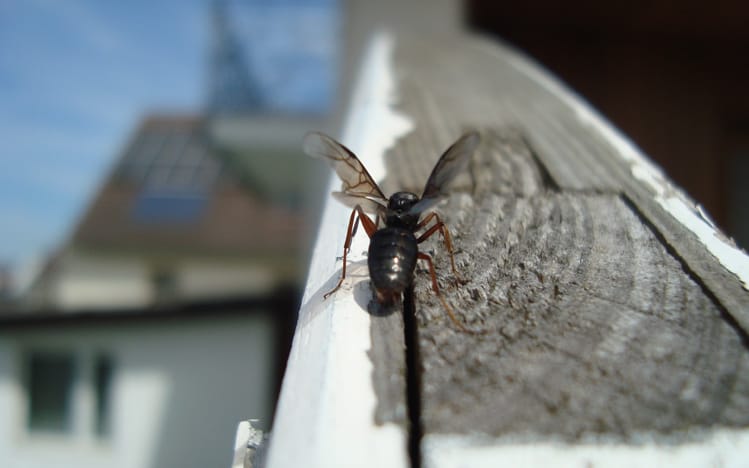
It Could Be a Big Year for Flying Ants
It hardly seems like a year has gone by since we last saw swarms of flying ants causing a nuisance for many of us. Yet here we are again – about to be hassled as the ants perform their so-called ‘nuptial flight’. It might sound appealing and romantic, but it is far from that for we humans.
We traditionally see the flying ants annoying people in July, but the unseasonably warm weather we have had in May seems to be triggering the annual flight earlier than usual. Once they arrive in numbers, the problematic flying ants could be around for up to two weeks before they disappear for another year.
We thought we’d clue you up on what they are and what to expect.
What is the nuptial flight?
This is the mating season for ants. The ants leave their nests – currently unseen, perhaps under pavements and other similar places – and go out to mate with others. This is great news for the females, as they will be responsible for creating new ants to found new colonies. Unfortunately, the male’s purpose is over once he has mated, and these ants will die once the process is complete.
Are flying ants harmful?
No, they present no danger to humans. However, their sheer numbers make them very annoying. With that said, if you live in an area prone to seagulls, you might notice them behaving in odd ways compared to usual. That’s because seagulls love eating flying ants. To them, the flying ant season is like an all-you-can-eat buffet. The presence of formic acid in the ants can have adverse effect on seagulls, however. They don’t die, but they can behave as if they’ve drunk one too many beers. So, be alert for seagulls that aren’t in full control of their faculties. They could turn out to be more problematic than the ants.
How to prevent flying ants from getting into your home
While the ants aren’t harmful, you wouldn’t want swarms of them flying in and using your property for a party filled with nuptials. If you don’t need to worry about children or pets, you can sprinkle some ant powder around your doorways and windows to ward them off. Sticky tape or similar can also prevent them from going indoors.
However, our ant populations do a lot of good in our gardens. So, perhaps we should allow them their mating season unencumbered.
